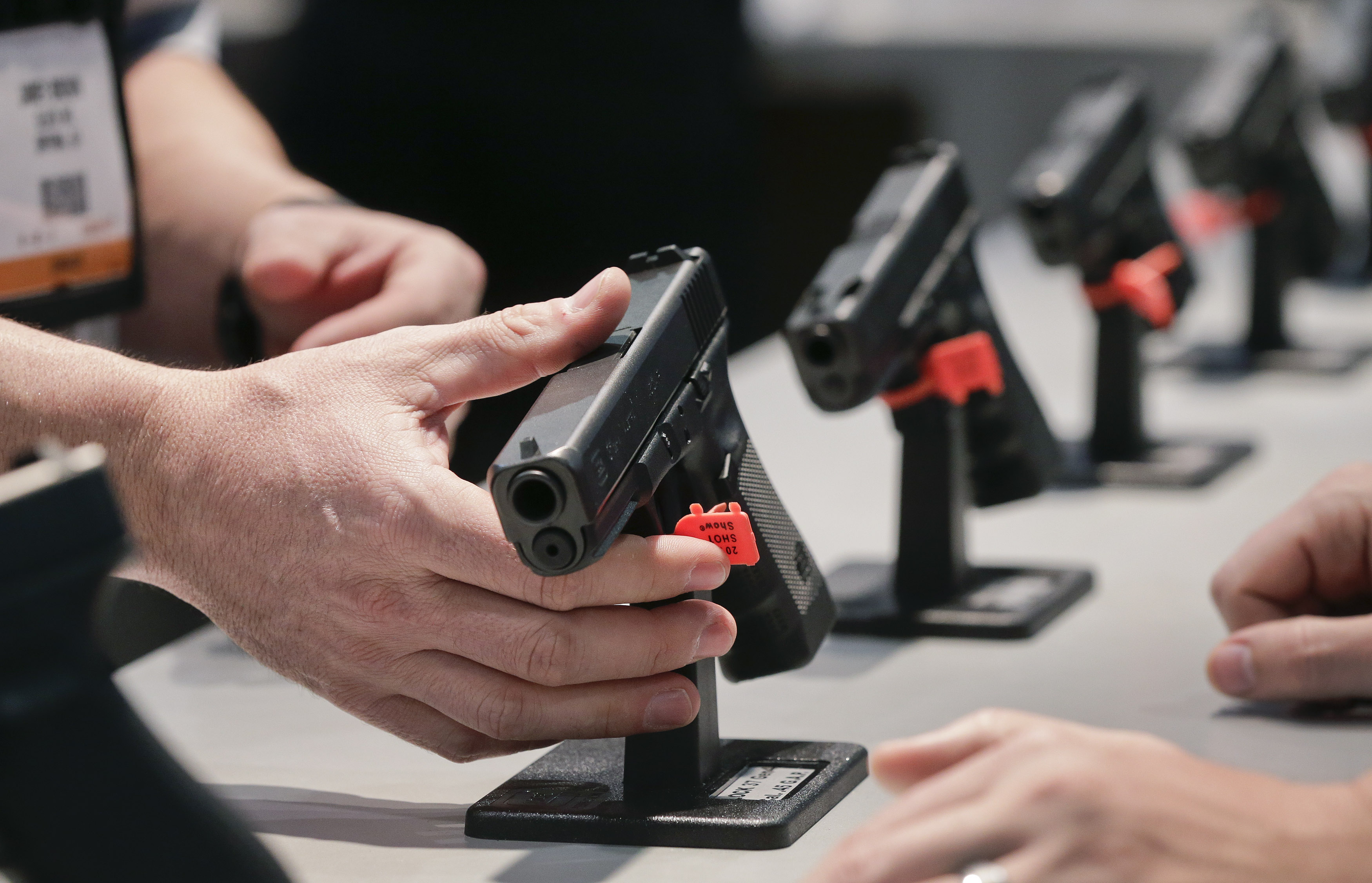Loophole Remains Despite Background Check Deal

A Glock representative explains features of the Glock 37 Gen 4 .45 caliber pistol at the 35th annual SHOT Show, in Las Vegas. (AP Photo/Julie Jacobson, file)
Four months after the Obama administration promised comprehensive gun control reforms, the Senate is preparing to vote on a proposal to expand background checks for gun purchases.
Expanding background checks have long been seen as the one area on which gun advocates and gun-control supports might compromise: A full 91 percent of Americans support them, according to a poll by Quinnipiac University conducted this month. In households with guns, 88 percent support the checks. So do the major law enforcement officer and educators’ groups. Even the NRA once considered them “reasonable,” even if it stridently opposes them now.
But any plans to expand background checks has been bogged down by concerns that it could lead to a national registry for guns — and confiscation by the federal government, although this proposal specifically bans the creation of a registry. And it’s still unclear whether the measure has the votes to pass both houses of Congress.
Right now, any gun purchased from a federally licensed dealer has to be run through the National Instant Criminal Background Check System, or NICS, which was established to prevent criminals and others banned from possessing a gun to buy one. The NICS includes felons, people in the country illegally, those who have been ruled by a court to be mentally ill, wanted fugitives, or those with domestic violence convictions, among others.
Since it began in 1998, the NICS check has stopped nearly 1 million people from buying guns, at least from a federally licensed dealer. But those people aren’t precluded from then going to a gun show, where checks aren’t required, or buying a firearm online or through another private seller.
This new proposal, detailed here, would require gun-show sales and online deals to be run through the check system.
It would also require all states to contribute mental-health records to the NICS database, cutting funding if they don’t comply. Right now, participation isn’t mandatory. In 2008, 14 states didn’t even submit those records to the database, according to the FBI. Virginia, for example, didn’t submit mental-health records to NICS before 2007, allowing a man who should have been banned from buying a gun to pass a background check, purchase firearms and kill 32 people at Virginia Tech.
But there’s one major loophole left: The proposal still doesn’t cover all gun transfers.
The proposed law would allow people to legally sell a firearm without a background check to someone they know — “friends, neighbors and other individuals” would be considered exempt.
A federal study found that 75 percent of felons obtained the firearms they used in crimes from friends, family or on the street or other illegal source. Allowing private sales to go unchecked assumes most people wouldn’t sell a firearm to someone who shouldn’t legally own one. It’s only illegal if the seller knows the person is prohibited from owning a gun — not if they don’t ask. But in a 2009 survey (pdf), 63 percent of private sellers sold firearms to people they believed would not be able to pass a background check.
The proposal also has one other provision that would allow buyers to skirt a check: Buyers would be able to present their state-issued concealed carry permits in lieu of undergoing a background check.
Still, gun-control advocates have backed the bill as a step toward reform. Mayors Against Illegal Guns, which has been lobbying hard for comprehensive legislation with the support of some of the families of Newtown victims, said the bill was a “common-sense step” that would “help keep guns out of the wrong hands.”





